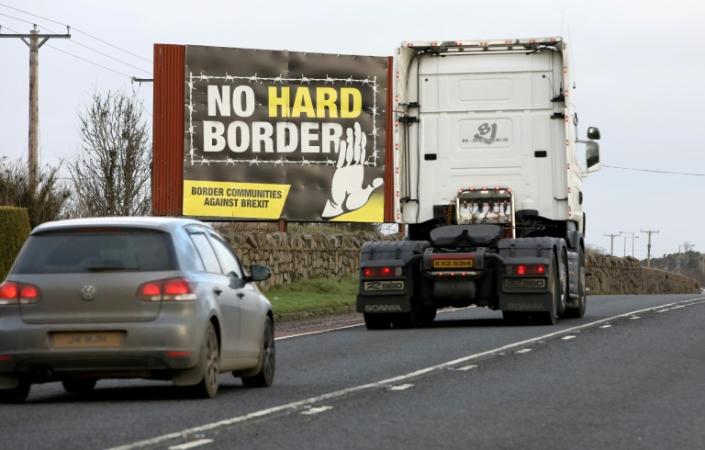
UK Prime Minister Rishi Sunak said on Friday his government was working “flat out” to settle post-Brexit trading problems in Northern Ireland to end political paralysis in Belfast.
On his first visit to Northern Ireland as premier, Sunak said he was “really committed to resolving some of the issues with the protocol” and “protecting Northern Ireland’s place in the union”.
The UK and the EU have been working this year to resolve their differences over post-Brexit trade rules known as the Northern Ireland Protocol.
The deal keeps Northern Ireland in the European single market and customs union, mandating checks on goods heading to the province from the rest of the UK.
It has proven deeply unpopular with pro-British unionists who have said the arrangements drive a wedge between it and the three other UK nations.
Sunak said by working though the problems, Northern Ireland’s lawmakers should be able to restore power-sharing at the region’s devolved government.
“That is what the people in Northern Ireland need and deserve,” he added.
Northern Ireland’s government has been out of action since February because of a boycott by the Democratic Unionist Party (DUP).
The party withdrew its first minister from the executive at Stormont in February in protest over the protocol.
It has refused to return until the rules are overhauled or scrapped entirely.
Sunak said he would not put a “strict deadline” on talks between London and Brussels but vowed to “work as hard and as fast as I can to find a resolution”.
“I want to do that as soon as practically possible,” he added.
Sunak met the leaders of Northern Ireland’s five main political parties on Thursday evening.
DUP leader Jeffrey Donaldson said he was told by the prime minister there would likely be an “intensification at the political level” of negotiations over coming weeks.
Sunak also toured Belfast’s shipyards to highlight the revival of shipbuilding in the historic area where doomed liner the Titanic was built and launched over 100 years ago.
Under a £1.6-billion ($1.9-billion) government contract, three new British naval vessels will be completed at the shipyards by a consortium led by Belfast shipbuilders Harland and Wolff.
csp/phz/kjm




